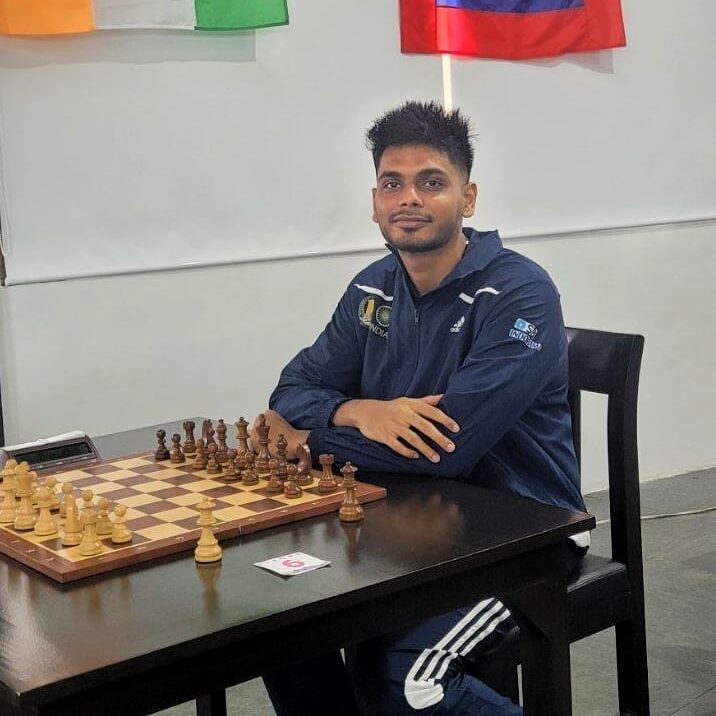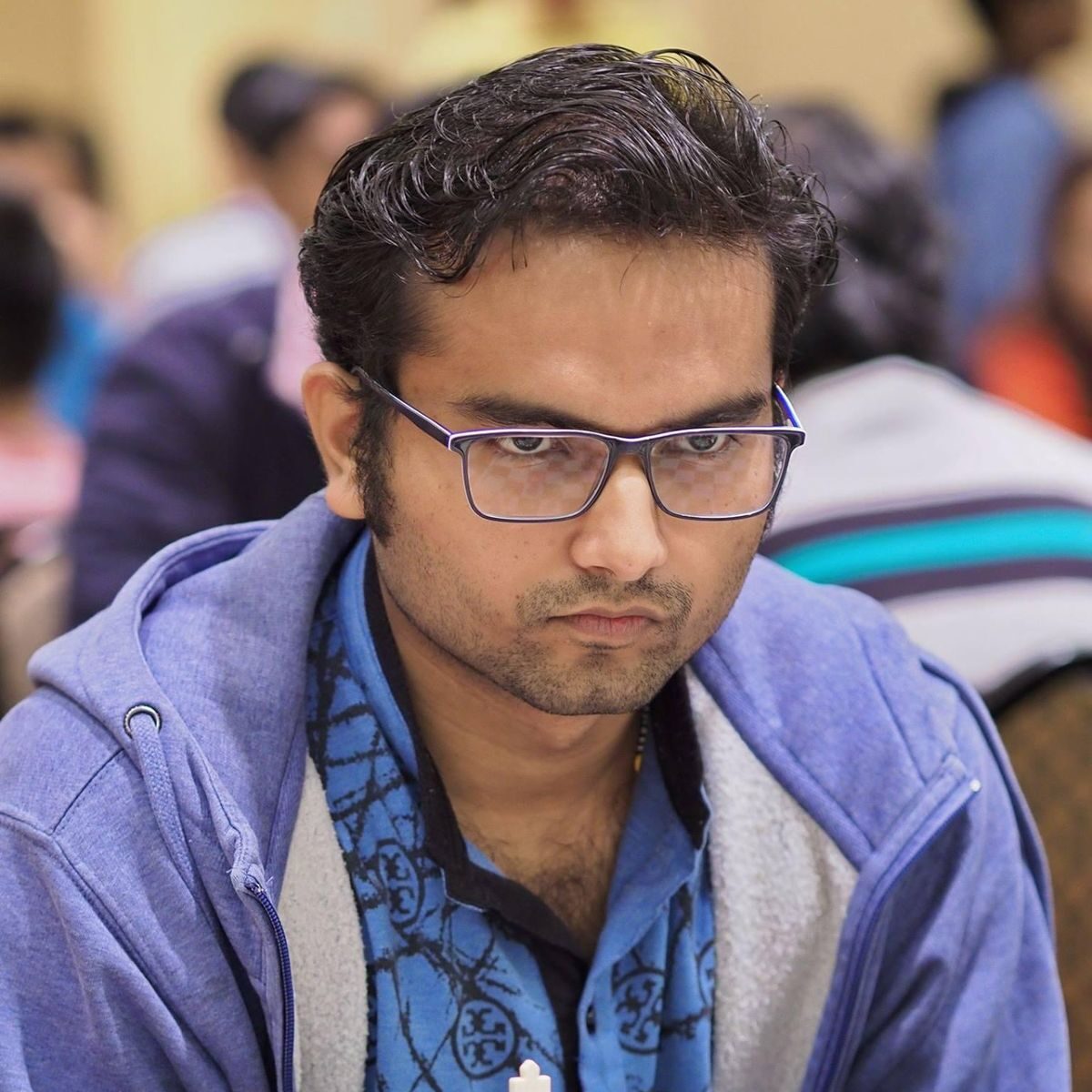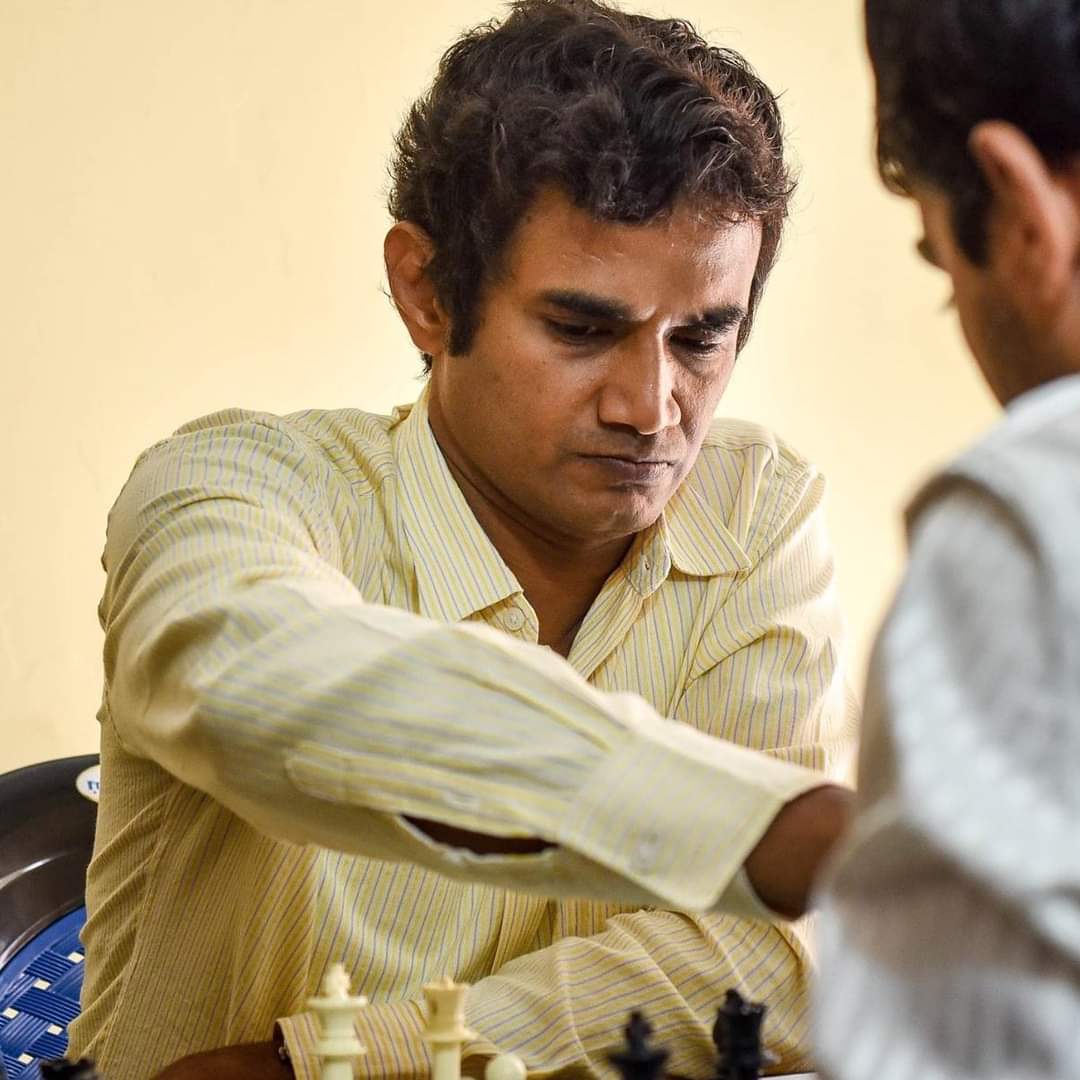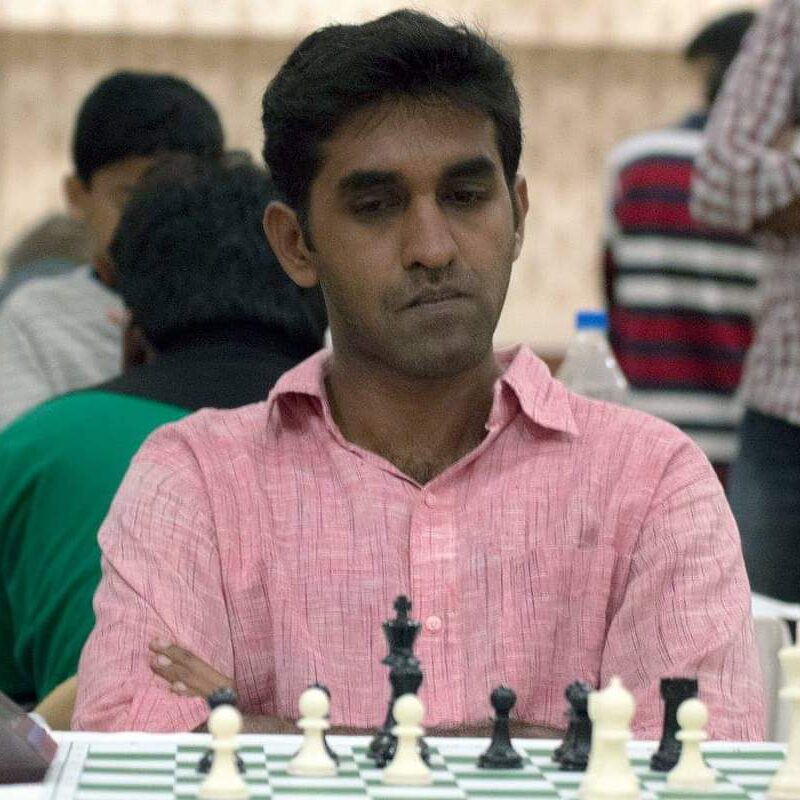We do chess camps
Chess Camps and Webinars
At The Chess Village, we conduct chess camps and webinars which ensures high-quality chess education accessible to all. Whether you want to learn basics of chess online or want to upgrade the existing knowledge, we are here to guide you.
CHESS CAMPS AND WEBINARS
Our Past Camps and Webinars

How to Study Chess Openings' by GM Akash Ganesan
This webinar is aimed at tackling one of the most important problems when it comes to studying chess, how to study chess openings. There are countless number of chess openings like Ruy Lopez, Sicilian Defence, English Opening, King’s Indian Defence etc. And it is well known that byhearting an opening could only be bad. So, what would be a general method that can be applied to the study of every chess opening? This is what we cover in this webinar where GM Akash masterfully explains how one can understand and learn chess openings without byhearting it. He covers the different steps involved in this method that would help us learn different openings.
- 7th May 2023
- Duration: 1.5 Hrs
Coach


3 Day Camp on 'Chess Psychology' by GM Swapnil S Dhopade
‘Chess Psychology’ is one of the most important, yet underrated areas in chess. Studying chess will help you acquire more chess knowledge, but what helps you become a better player and win tournaments is training chess skills and chess psychology. Of theses, chess psychology is perhaps the most important. Once you acquire the right mindset and attitude, you’ll be able to correctly apply everything that you have studied and trained, and you’ll be able to boost your results. Sadly, this topic is not paid much attention to, which is why we have decided to cover it in our camp.
The specific topics of each day are as follows:
Day 1:
- Improving self confidence
- How to handle losses
- Handling higher/lower rated players
- Improving concentration
Day 2:
- How to handle surprises
- Understanding your opponent’s personality and playing accordingly
Day 3:
- Efficient decision making
- 21, 22, 23 July 2023
- Duration: 6 Hrs
Coach


Camp on 'Typical Exchange Sacrifices' by GM Sundararajan Kidambi
Sacrifices like Rxc3 and Rxf3 are common but not many players know these sacrifices in detail. Especially the positional aspects of these sacrifices. This makes them hesitant while they get an opportunity to make such a sacrifice. But, studying these sacrifices will make them confident and improve their overall positional understanding.
However, the sacrifice Rxe3 is not even known to many players.
The specific topics of each day are as follows:
Day 1:
Attacking and positional aspects of …Rxc3 sacrifice
Day 2:
Attacking and positional aspects of …Rxf3 sacrifice
Day 3:
Attacking and positional aspects of …Rxe3 sacrifice
- 17, 18, 19 April 2024
- Duration: 6 Hrs
Coach


Camp on 'Static and Dynamic Play in Chess' by IM V Saravanan
Static & Dynamic Play in Chess is one of the most fundamental and important topics for any chess player. Every position is a combination of one or more static and/or dynamic features. Hence, any kind of action in the position will depend on static/dynamic factors involved in the position. Be it the judgement of a position, or the creation of a plan, or it’s execution. All these require a good understanding of static and dynamic features of the position. It helps us to get a larger picture of the game and a direction on how the game should proceed. And all the smaller decisions (for example, exchanges, piece positions, manoeuvres etc) should be made in accordance to this.
The specific topics of each day are as follows:
Day 1:
Dynamic Play
Day 2:
Static Play
Day 3:
Static vs Dynamic – Dynamic side takes advantage
Day 4:
Static vs Dynamic – Static side takes advantage
- 8, 9, 10, 11 June 2024
- Duration: 8 Hrs
Coach


Camp on 'Defending against Typical Sacrifices' by GM Thejkumar M S
Sacrifices are very common in chess, especially when it comes to sacrifices for attack. Some typical sacrifices like the Greek Gift Sacrifice or Lasker’s Double Bishop Sacrifice are very well covered in books. However, what is neglected, and is of equal importance is how to defend against such sacrifices. Also, how to judge whether allowing such a sacrifice would benefit the defending side. Such a decision of whether to allow or disallow a sacrifice comes very commonly in our games. And most players prefer to disallow these sacrifices fearing to enter complications. even if the complications will favour him/her. In this camp we aim to address this exact issue, to judge whether to allow a particular sacrifice, and how to defend against some typical sacrifices in chess, and gain the upper hand.
The specific topics of each day are as follows:
Day-1
Defending against Greek Gift sacrifice
Day-2
Defending against the bishop sacrifice on h6
Day-3
Defending against the knight sacrifice on g5
- 2, 3, 4 August 2024
- Duration: 6 Hrs
Coach


Camp on 'Methods of Active Defense' by IM V Saravanan
In chess, there are mainly two ways to defend an attack – the passive way and the active way. Active defense is usually preferred over passive defense as, once you go passive, it allows your opponent to attack you further and might result in an eventual collapse of your defense due to the extreme pressure exerted in your position by the opponent’s pieces. Passive defense also limits the counter-attacking potential of your pieces. On the othet hand, through active defense, you try to take over the initiative from your opponent and launch a counter-attack. Active defense often involves giving up material in return for an attack or the initiative.
And in this camp, we deal with three of the most common ways to defend an attack actively:
Day-1: Counter-attack
Day-2: Ignoring the threat
Day-3: Sacrificing the attacked piece
- 28,29,30 October 2024
- Duration: 6 Hrs
Coach

CHESS CAMPS AND WEBINARS
Our Upcomimng Camps

Camp on Chess Training

Camp on Chess Training

Camp on Chess Training
FAQ
Popular Questions
Our chess camps welcome both children and adults, typically starting from age 6 and up. We organize participants by age and skill level, ensuring that everyone benefits from the experience.
For our beginner camps, no prior experience is necessary—anyone can join and start learning the basics of chess. However, some of our advanced-level camps require participants to have prior experience or a certain skill level to ensure that the curriculum meets their needs.
Our chess camps cover a wide range of chess concepts, from beginner to advanced levels. We focus on delivering the most value to our students by teaching essential tactics, strategies, and theories that can help improve their overall game.
The camp usually lasts 3-4 days, with daily sessions ranging from 1.5 to 2 hours. This format is designed to provide intensive learning while keeping the experience enjoyable and manageable for participants
You’ll need a reliable internet connection, a computer or tablet with a webcam and microphone, and access to a chess platform, which we’ll provide. Detailed instructions will be sent to you after registration.
Yes, we host friendly tournaments towards the end of each camp. These tournaments offer a fun and competitive environment for participants to apply what they’ve learned and gain valuable playing experience.
We assess participants at the start of the camp and group them based on their skill levels. This ensures that each player receives instruction suited to their abilities, allowing for a productive and enjoyable learning experience.
Our camps are led by national-level chess coaches and both national and international chess players. These experienced professionals bring a wealth of knowledge and passion for chess to help each participant improve their game.
You can register online through our website or simply send a WhatsApp message to +91 7012923239. Once registered, we’ll confirm your spot and send all the necessary details to get you started.
If you have any further questions or need more information about our chess camps, feel free to reach out to us via email at thechessvillage@gmail.com or contact us directly through our website or WhatsApp.
